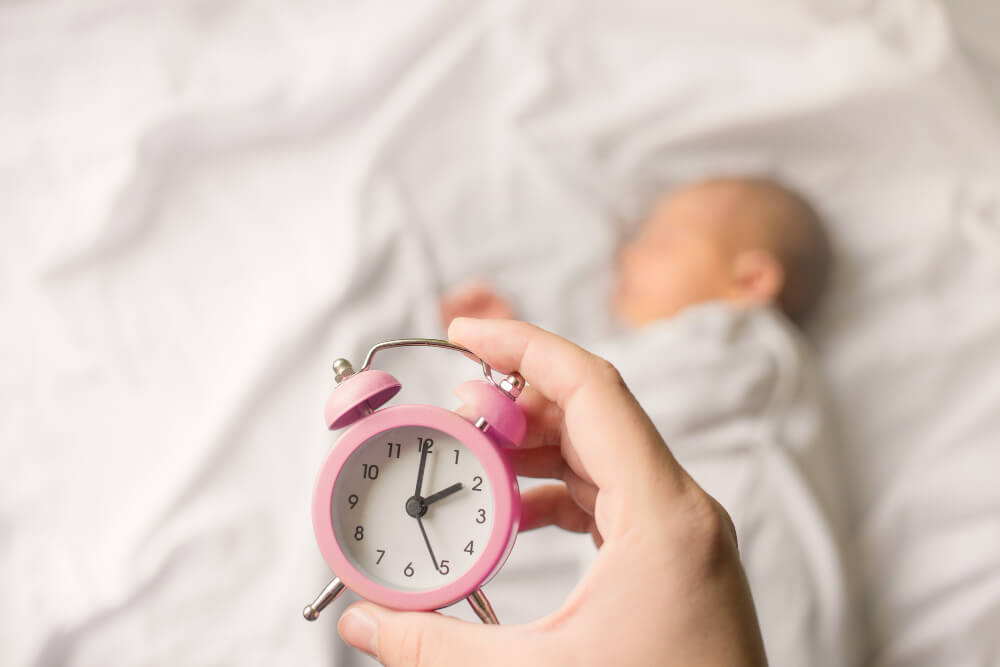
How Lack of Sleep May Affect Your Fertility: Solution With Chinese Medicine
Getting enough high-quality sleep is vital for overall health and wellbeing. However, in today’s busy modern world, lack of sleep has become a major problem. It is recommended that adults should get 7 or more hours of sleep per 24 hours. Women in particular are at a higher risk of experiencing sleep disturbances for a variety of reasons. Not only is sleep imperative to achieving optimal physical and emotional well-being, but sleep disturbances can have a negative effect on fertility.
Infertility currently affects around 9 to 15% of couples. As more couples struggle with conception, understanding all possible risk factors is important. Studies have shown that that infertility across all ages is affected by the quality, timing, and duration of sleep.
6 Ways How Lack of Sleep Can Affect Fertility
Chinese Medicine takes an alternative approach to sleep and fertility, it identifies the root cause of lack of sleep and fertility and offers natural treatment to give you the highest chance of conceiving. Keep reading to learn more about sleep and fertility.
1. Hormonal Imbalance
Biologically, sleep and fertility are related via hormone production, including FSH, or AMH and melatonin. Sleep disturbances can occur due to imbalances in these hormones, which can lead to conditions that impact fertility.
2. Reduced Egg Quality
While a variety of factors can impact egg quality, women with normal menstrual cycles who get 8 or more hours of sleep per 24 hours had FSH levels around 20% higher than their counterparts who had shorter sleep duration.
3. Sperm Health
In a study of over 900 men, it was concluded that too little or too much sleep, as well as late bedtimes, increases the production of the Antisperm Antibody, which reduces sperm quality, motility, and count.
4. Increased Stress
Chinese medicine views stress as disrupting the flow of qi (energy) in the body. Studies have shown that stress can affect menstrual cycle and ovulation, in turn, affecting fertility.
5. Altered Immune Function
Adequate sleep is important for optimal immune system functioning and hormone production. The immune system and reproductive systems are closely intertwined with hormones and pathways, thus creating a significant relationship that can be affected by imbalances. Getting enough sleep helps to boost the immune system.
6. Inflammation
Chronic sleep deprivation has been linked to increased inflammation in the body. Inflammation can affect the flow of fluids like Qi, blood, and even menstrual cycle regularity. Researchers have identified a correlation between irregular menstrual cycles and women working notoriously sleep-deprived jobs, such as shift work.
How Does Chinese Medicine View Lack of Sleep?
TCM identifies patterns of imbalance that may be associated with lack of sleep and impact fertility. Often, an imbalance with Yin and Yang is present, preventing one from having a restful night’s sleep. A Chinese Medicine Practitioner can help you identify which areas require focus and intervention.
- Weakens the Kidney Essence – The kidney essence is also known as Jing. In Chinese Medicine, kidneys rule reproduction. Adequate sleep is necessary to ensure Kidney Qi is circulating and the Jing is strong. We lose our Jing as we age, and sleep helps to prolong its presence.
- Obstructs Qi Flow – According to TCM principles, inadequate sleep can disrupt the smooth flow of Qi throughout the body. This imbalance may affect the proper functioning of organs, including those involved in reproduction, such as the kidneys and liver.
Additionally, based on the TCM body clock, each organ or system has two hours of cleansing throughout the day. Our gallbladder releases bile and the liver cleanses the blood during sleep. Disrupted sleep can alter the flow of our Qi by preventing important restorative processes.
- Kidney Yin Deficiency – Kidney Yin nourishes the body, and if it is deficient, organs such as the ovaries and uterus may be affected. Kidney Yin deficiency is also related to poor egg quality. Lack of sleep may lead to a deficiency in Kidney Yin, which is associated with the nourishing and cooling aspects of the body. This deficiency may manifest as symptoms such as night sweats, hot flashes, and a dry throat.
- Impedes Blood Circulation – In TCM, adequate sleep is considered essential for nourishing the blood. Lack of sleep may contribute to Blood Deficiency, which can manifest as symptoms like fatigue, pale complexion, and poor concentration. Blood deficiency may influence reproductive health by affecting the quality and nourishment of the blood that supports reproductive organs.
- Liver Qi Stagnation – The liver in TCM is responsible for the smooth flow of Qi throughout the body. Lack of sleep or irregular sleep patterns can lead to stagnation of Liver Qi, resulting in symptoms such as irritability, mood swings, and stress. This stagnation may indirectly impact fertility by disrupting the flow of energy in the reproductive organs.

Overall, sleep and fertility are closely connected and a lack of sleep can affect our body’s ability to function smoothly, including reproductive processes.
It’s important to note that the impact of sleep on fertility can vary among individuals, and not everyone will experience the same effects. Additionally, addressing sleep issues is just one aspect of promoting overall reproductive health. If you are experiencing fertility concerns or persistent sleep problems, it’s advisable to consult with healthcare professionals, including fertility specialists. Don’t know where to start? We offer free online consultation here.

What Can Be Done to Improve Sleep and Fertility Outcomes?
Addressing sleep issues can have a positive impact on fertility outcomes. Chinese medicine has been used for centuries in addressing sleep-related fertility challenges. From acupuncture to herbal remedies, TCM offers a range of different options that seeks to restore balance.
1. Acupuncture – Acupuncture, as a part of traditional Chinese medicine (TCM), may contribute to improved sleep quality and, indirectly, enhance fertility.
Acupuncture is a TCM treatment that involves inserting small needles into the skin along certain points and pathways on the body to stimulate the flow of Qi. Since adequate sleep and fertility outcomes are connected, the evidence that acupuncture may improve sleep quality is promising.
Further, often insomnia is caused by Qi Liver stagnation which can negatively affect fertility. Acupuncture may also promote fertility via the effects of reducing stress, balancing hormones, and regulating the menstrual cycle.
An acupuncturist will target specific points related to sleep and fertility based on a patient’s unique symptoms and imbalances.
Related: Acupuncture for Fertility
2. Moxibustion – Moxibustion involves burning the herb mugwort along specific points on the body. Moxa sticks can be used directly or indirectly to help encourage the flow of Qi and balance the body’s meridians.
There are no adverse side effects and it is a relatively safe procedure. It also has benefits for fertility as it can help reduce sleep disturbances, and shows some effectiveness against insomnia. Moxibustion can also help with warming the uterus, nourishing the reproductive organs, and promoting blood circulation.
Recommended Supplements
If you’re experiencing fertility issues or sleep disturbances, we advise consulting with experts who specialise in sleep and fertility. At GinSen our fertility expert have over 30 years of experience under their belt.
Unsure where to start? Our experts can provide personalized advice and recommendations based on your specific situation. Speak to an expert here.
Lifestyle – There are many other areas one can focus on when trying to improve sleep and fertility. Getting outside and in the sunshine can help with circadian rhythms. Gentle exercise and intentional movement promote healthy sleep and reduce stress.
Making sure to eat balanced, healthy foods also ensures the body can get a restful night of sleep. Sometimes, Chinese herbs may be used to promote an adequate slumber. Mindfulness and other ways to reduce stress can also help one fall asleep more easily.
For more information about Chinese Medicine, book your free consultation with our Chinese Medicine experts today
* These statements have not been evaluated by the Food and Drug Administration. This information is not intended to diagnose, treat, cure, or prevent any disease. We can’t guarantee the treatment result, as the symptoms of conditions are unpredictable and vary greatly from person to person. The treatment length and recovery time also varies for individual. Please visit our clinics website: GinSen where a specialists will discuss your care and provide a consultation, and the treatment will be designed to meet your individual needs.






